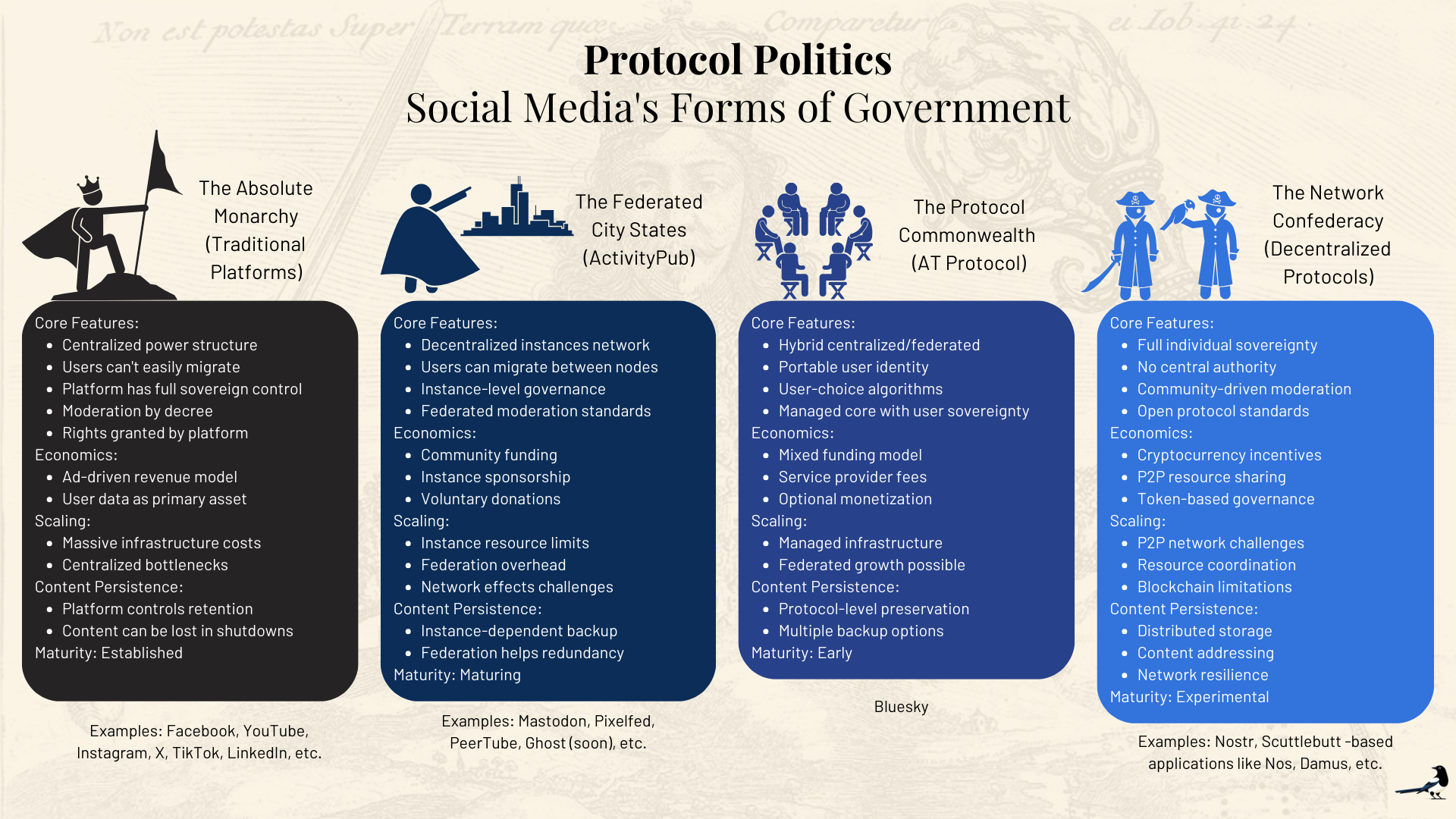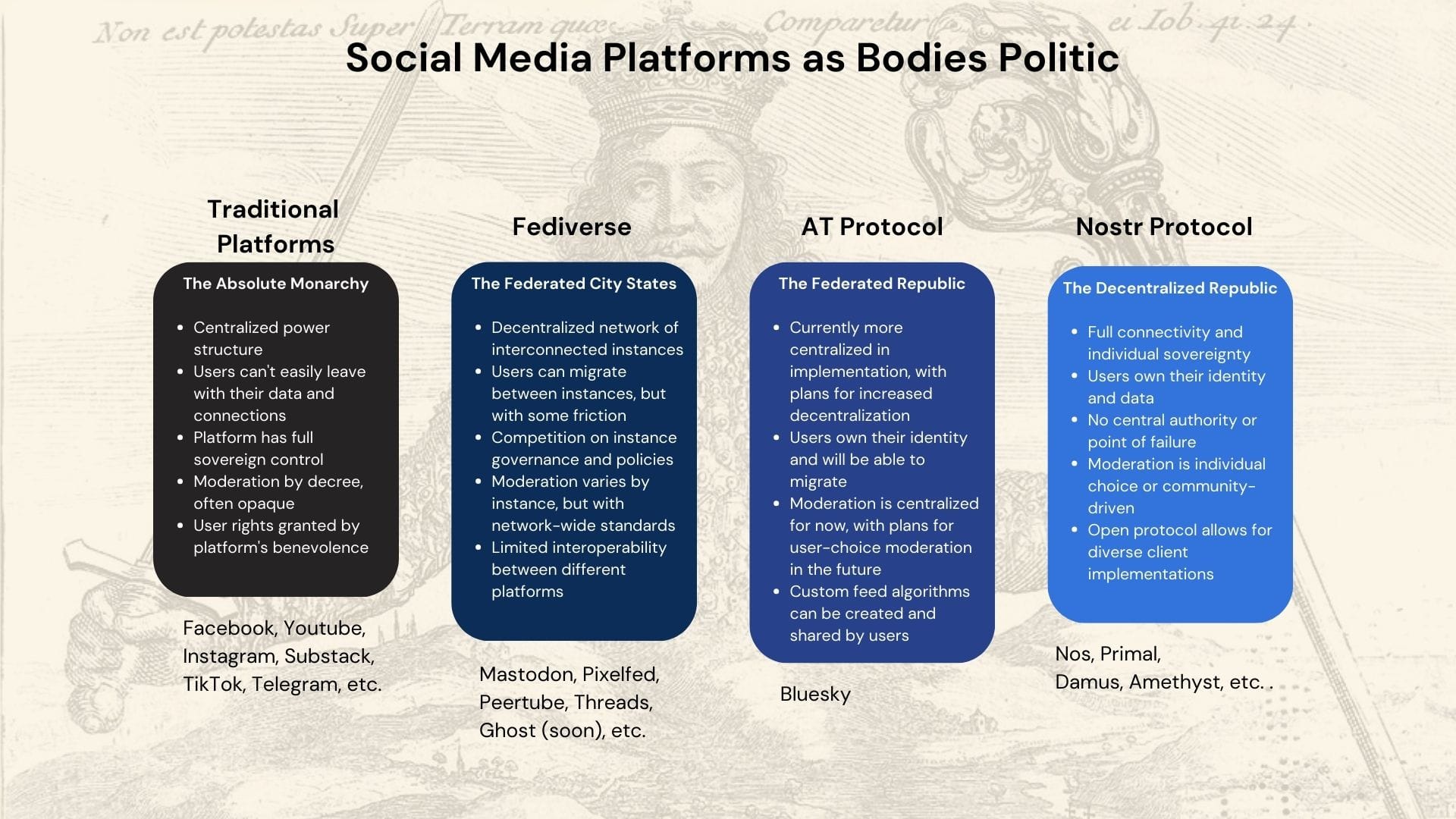From digital monarchies to decentralized republics: Social media protocols are political
Update Nov. 27, 2024:
I just updated this nerdy social platform protocols map that I shared here a few months ago, because this eternal debate about whether "online life is real life" keeps coming up. Of course it's real.
We spend significant parts of our social lives in these spaces, governed by protocols that mirror distinct political systems: from traditional platforms operating as absolute monarchies (think centralized control, no real user rights) to newer decentralized confederacies (think real user rights, but also responsibilities and complexities).
Each model shapes our experience through its unique approach to content persistence, economics, and moderation. Here's what's important: we actually have a choice about which governance models we participate in - which digital citizenships we take on. It's worth thinking about these choices beyond just reach and convenience.
For those who've been jumping onto Bluesky lately, you're choosing a commonwealth that gives you greater agency than more autocratic systems that don't. Find me at @pboehler.net.

July, 7, 2024:
Yesterday, I got to present at a fascinating gathering hosted by Nos, where we explored the current state and future potential of social media platforms.
My presentation (slides) focused on the exploitation of current platforms by autocrats and the promising solutions offered by decentralized protocols.
The conversations made me wonder: what if we viewed social media platforms as digital bodies politic, with their underlying structures representing different forms of governance?
The attached image illustrates this concept, portraying a spectrum from "The Absolute Monarchy" of traditional platforms to "The Decentralized Republic" of emerging protocols. It's a simplified model, but it offers a possible framework for understanding the evolving landscape of social media.

Traditional platforms, represented by giants like Facebook and TikTok, operate much like absolute monarchies. They wield centralized power, often with opaque moderation policies and limited user autonomy.
In contrast, the Fediverse introduces a model akin to federated city-states, offering users more freedom to migrate between interconnected instances for the technically-literate few.
Further along the spectrum, we see the emergence of protocols like AT Protocol (powering Bluesky) and Nostr. These represent more advanced forms of digital republics, promising increased user sovereignty, data ownership, and decentralized governance.
A lot more work needs to be done, but the opportunities are there.